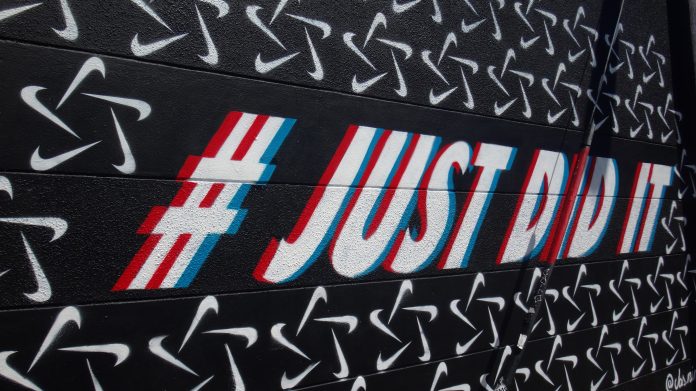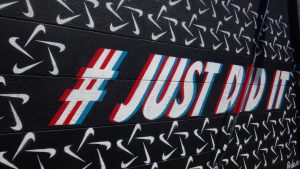
 “I’m with Kap.” It’s the simple, hashtagged phrase printed on the front of the jerseys made available on free agent and activist Colin Kaepernick’s website on Sept. 10. I suppose the word “available” in that sentence is misleading, as the jerseys sold out only seven hours after he first announced their release on Twitter. The recent buzz surrounding Kaepernick all started when Nike unveiled the quarterback as one of the faces of their “Just Do It” 30th anniversary campaign. Depicting a black and white close-up of his face, the ad reads, “Believe in something. Even if it means sacrificing everything.”
“I’m with Kap.” It’s the simple, hashtagged phrase printed on the front of the jerseys made available on free agent and activist Colin Kaepernick’s website on Sept. 10. I suppose the word “available” in that sentence is misleading, as the jerseys sold out only seven hours after he first announced their release on Twitter. The recent buzz surrounding Kaepernick all started when Nike unveiled the quarterback as one of the faces of their “Just Do It” 30th anniversary campaign. Depicting a black and white close-up of his face, the ad reads, “Believe in something. Even if it means sacrificing everything.”
Nike’s move to address pervasive oppression in professional sports leagues was described by news outlets as “a gamble” and by the president as something that would cause Nike to get “absolutely killed with anger and boycotts.” Luckily, the supposed risk for Nike paid off. Their shares hit an all-time high and their social media platforms drew record likes. The sort of sacrifice that Kaepernick refers to in his ad is exactly why Nike’s public support, along with its success among fans, is so important. The brand doubled down on their position when they took a shot at French Tennis Federation President Bernard Giudicelli in August when he banned Serena Williams’ wear of a black, form-fitting ensemble at the French Open, an undoubted microaggression implying the 23-Grand Slam title champion had no respect for the game. Despite Kaepernick’s sold-out jerseys and Nike’s support, athletes like him and Williams are still being attacked by the leagues they bring so much attention and profits to.
Ever since his first protest, sitting for the duration of the national anthem at the beginning of the 2016 season, then kneeling with teammate Eric Reid, there has been immense criticism of similar forms of public protest in the name of patriotism. Excuse my informality, but that’s hogwash. Kaepernick and other players who followed in his lead were clear in emphasizing that their actions were not to be anti-American or anti-military, but rather to object to the oppression of people of color and ongoing issues with police brutality. What arguments like these accomplish is detracting from the original issue being protested and silencing the activists involved.
Though celebrities, pundits, and even the president speak out to denounce protests, these issues, again, are largely rooted within the sports leagues themselves. In this year’s women’s US Open final, chair umpire Carlos Ramos demonstrated blatantly sexist discrimination against Serena Williams in treating her objection to his first warning as a form of hysteria, punishable by another code violation and, ultimately, a $17,000 fine. Tennis legend Billie Jean King highlighted the key issue of this incident when she tweeted, “When a woman is emotional, she’s “hysterical” and she’s penalized for it. When a man does the same, he’s “outspoken” & and there are no repercussions.”
Today, Kaepernick continues to be an unsigned free agent, having filed an official grievance against the NFL that claims team owners colluded to keep him from playing and, therefore, bringing publicity to his cause. In May, the league required that players stand if they choose to be on the field during the playing of anthem. Despite the oppressive systems that have worked themselves into the traditions of modern sports leagues, online support for Williams and the selling out of Kaepernick’s jerseys demonstrate the immense support for their stands against systematic race and sex-based abuse. My only advice for these leagues is, when it comes to fostering an encouraging environment for their athletes to speak out on social issues, just do it.

